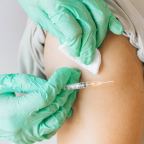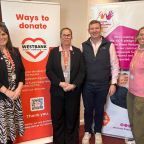
Devon & Cornwall Police campaign to build awareness around spiking
Devon & Cornwall Police is sending a message to anyone who thinks that it is OK to spike another person “for fun” or more sinister purposes: it’s an abhorrent crime and can have a significant, traumatic impact on victims, and can have severe consequences for perpetrators.
Spiking is when someone does any of the following to someone without their knowledge or permission: putting alcohol or prescription drugs or illegal drugs into their drink (alcoholic or non-alcoholic), injecting them with prescription or illegal drugs, putting prescription or illegal drugs into their food, or putting prescription or illegal drugs into their cigarette or vape.
Inspector Martin Tregaskes, Drug and Alcohol Harm Reduction lead for Devon & Cornwall Police said: “Just in case anyone is in any doubt, any form of spiking is illegal and the consequences for anyone found to have spiked another person in any way can be severe, including long custodial sentences. Further crimes committed against a spiked person carry their own penalties.”
“Nationally we often see a slight increase in reports of spiking during fresher’s weeks so we are asking everyone to be aware when they are out, to look out for themselves and their friends.
“We would also like to make it very clear that victims are never to blame and Devon & Cornwall Police will always listen and take reports of spiking seriously.”
Anyone who thinks they may have been spiked, perhaps on an evening out, should tell a trusted friend or member of venue staff or security as soon as possible. Anyone who is a victim of spiking should also report it to police immediately to give the best chances of capturing evidence.
There is now an online reporting service on the Devon & Cornwall Police website which offers a fast-time route to report spiking and prompts specific questions to capture evidence for spiking cases. It doesn’t matter when the spiking happened, and you can report on behalf of others. This is the link: https://www.devon-cornwall.police.uk/ro/report/report-spiking/v2/report-spiking/
Between May 2022 and April 2023 the police nationally received 6,732 reports of spiking, but it is believed that spiking is under-reported. The majority of cases take place in the evening and night time economy and most victims are women.
Inspector Tregaskes continued: “Spiking is not always linked to sexual offences or assaults but it can happen to anyone and whatever the intention, the outcome is leaving people feeling vulnerable and unsafe. We therefore treat spiking with the same seriousness as other crimes and we strongly encourage victims to report it to us online or by calling 101. If anyone is in immediate danger call 999.”
“You will not get in trouble if you report spiking and have knowingly consumed illegal drugs. Unless you’re driving, having illegal drugs in your system is not an offence and should not prevent someone reporting - we will want to make sure you’re OK. If you think if you have been sexually assaulted and feel unable to report it to the police, we encourage you to visit your local Sexual Assault Referral Centre (SARC) for support.”
Full information about what to do if you have been sexually assaulted can found on the Devon & Cornwall Police website here: https://www.devon-cornwall.police.uk/ro/report/rsa/alpha-v1/advice/rape-sexual-assault-and-other-sexual-offences/
Students and other customers of licenced premises can expect to see posters in bars, pubs and clubs throughout the coming weeks, which highlight the consequences for anyone intent on spiking another person and signposts people to more information about spiking and how to report it to the police. More information about spiking and how to report it is on the Devon & Cornwall Police website: https://www.devon-cornwall.police.uk/adv











